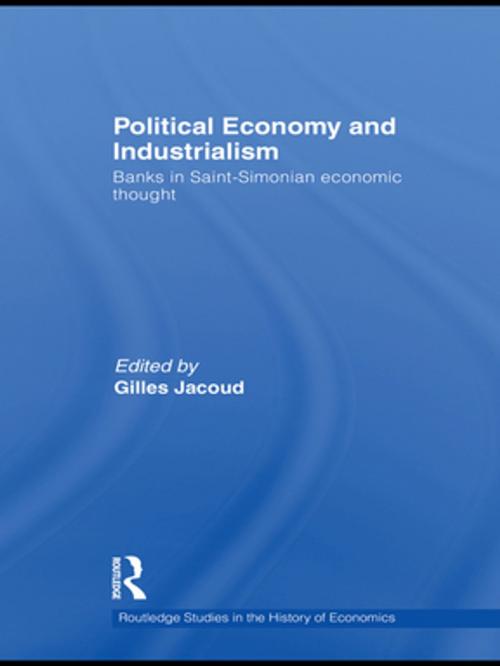Political Economy and Industrialism
Banks in Saint-Simonian Economic Thought
Business & Finance, Finance & Investing, Banks & Banking, Economics, Economic History| Author: | Gilles Jacoud | ISBN: | 9781136993053 |
| Publisher: | Taylor and Francis | Publication: | April 5, 2010 |
| Imprint: | Routledge | Language: | English |
| Author: | Gilles Jacoud |
| ISBN: | 9781136993053 |
| Publisher: | Taylor and Francis |
| Publication: | April 5, 2010 |
| Imprint: | Routledge |
| Language: | English |
The French philosopher and economist Saint-Simon (1760–1825) propounded a new political, economic and social order in which the quest for economic efficiency and social justice led to putting the workers at the forefront. On his death, his disciples worked to preserve his thought and developed it in numerous writings.
This book explains why the Saint-Simonians could not be content with the existing economic and social order and how they planned to organise society and the role banks were to play in it. It contains a selection of old texts, written by the main Saint-Simonian thinkers, published in the press in French between 1826 and 1831, which show the Saint-Simonian conception of the organisation of society and the place allotted to banks.
It is an indispensable reference work in understanding a current of thought which greatly contributed to the industrial expansion of the nineteenth century. This book will be of interest to postgraduate students, economists, historians and philosophers interested in the history of economic thought.
The French philosopher and economist Saint-Simon (1760–1825) propounded a new political, economic and social order in which the quest for economic efficiency and social justice led to putting the workers at the forefront. On his death, his disciples worked to preserve his thought and developed it in numerous writings.
This book explains why the Saint-Simonians could not be content with the existing economic and social order and how they planned to organise society and the role banks were to play in it. It contains a selection of old texts, written by the main Saint-Simonian thinkers, published in the press in French between 1826 and 1831, which show the Saint-Simonian conception of the organisation of society and the place allotted to banks.
It is an indispensable reference work in understanding a current of thought which greatly contributed to the industrial expansion of the nineteenth century. This book will be of interest to postgraduate students, economists, historians and philosophers interested in the history of economic thought.















